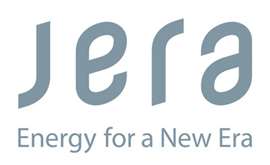JERA finalizes long-term U.S. LNG deals
June 13, 2025
Japanese power giant secures up to 5.5 million tonnes per year through multi-decade agreements with U.S. suppliers
JERA Co., Japan’s largest power generation company, has finalized a series of long-term agreements to procure up to 5.5 million tonnes per year (MTPA) of liquefied natural gas (LNG) from the United States, reinforcing its strategy to diversify fuel supply and strengthen energy security for Japan and Asia.

The deals were formally announced at a June event held at the U.S. Department of Energy headquarters in Washington, D.C., and attended by U.S. Secretary of the Interior Doug Burgum, Energy Secretary Christopher Wright, Japanese Ambassador to the U.S. Shigeo Yamada, and executives from JERA. Burgum and Wright also serve as Chair and Vice Chair, respectively, of the National Energy Dominance Council.
The agreements include Sales and Purchase Agreements (SPAs) with NextDecade Corporation and Commonwealth LNG, along with Heads of Agreement (HOAs) with Sempra Infrastructure and Cheniere Marketing LLC, to secure future volumes from projects in Texas and Louisiana. The LNG will be delivered on a Free on Board (FOB) basis with no destination restrictions, giving JERA maximum flexibility in delivery and trading.
“These agreements strengthen Japan’s energy security, reaffirm the U.S.’s leading role in the global LNG market, and support long-term sustainable economic development for both countries,” said Yukio Kani, JERA’s Global CEO and Chair. “After more than 15 months of strategic evaluation and commercial engagement, we are pleased to finalize the Agreements with U.S. suppliers, which offer unique flexibility and reliability—essential elements in our diversification strategy.”
Strategic economic impact
According to an analysis by S&P Global cited during the announcement, the cumulative impact of the new offtake deals could contribute approximately $200 billion to U.S. GDP and support 50,000 jobs annually over the 20-year period.
The total value of these new transactions also exceeds JERA’s existing U.S. equity investments, which stand at $6 billion across LNG and power generation assets. JERA is already one of the largest LNG buyers globally and a major player in U.S. LNG procurement, with existing offtake contracts totaling 3.5 MTPA from Freeport LNG and Cameron LNG, plus a 2023 agreement with Venture Global CP2 LNG for 1.0 MTPA.
Contract breakdown
The newly signed agreements span several projects and suppliers:
- NextDecade (Rio Grande LNG, Texas): 2.0 MTPA, 20-year term
- Commonwealth LNG (Louisiana): 1.0 MTPA, 20-year term
- Sempra Infrastructure (Port Arthur LNG Phase 2, Texas): 1.5 MTPA, HOA for 20 years
- Cheniere Marketing (Corpus Christi and Sabine Pass, Texas and Louisiana): Up to 1.0 MTPA, HOA for more than 20 years
All contracts are structured under FOB terms, allowing JERA to optimize shipping routes and manage supply across multiple demand centers in Asia.
JERA said the agreements align with several of its broader strategic goals:
- Price stability: Long-term contracts act as a hedge against global energy price volatility, helping shield Japanese consumers from market shocks through the 2040s and beyond.
- Demand responsiveness: As renewable energy sources introduce seasonal and intermittent demand patterns, these LNG contracts give JERA the flexibility to manage supply fluctuations and ensure reliability.
- Global optimization: Through JERA Global Markets, which handles its trading and market access, the company will use the new contracts to optimize deliveries, match supply with demand, and enhance competitiveness across the Asia-Pacific region.
Expanding global footprint
Founded in 2015, JERA is a joint venture between Tokyo Electric Power Company (TEPCO) and Chubu Electric Power. The company generates about one-third of Japan’s electricity and is a major player in the international LNG market, with active roles in upstream projects, fuel procurement, transportation, and generation.
As part of its long-term vision, JERA has committed to achieving net-zero CO₂ emissions across its global operations by 2050, integrating renewables, hydrogen, and ammonia alongside LNG to support a more sustainable energy transition.
“These agreements represent a true win–win and reflect a strong commercial partnership between two long-standing allies,” Kani said. “We look forward to building on this momentum with partners and customers around the world.”
MAGAZINE
NEWSLETTER

CONNECT WITH THE TEAM








